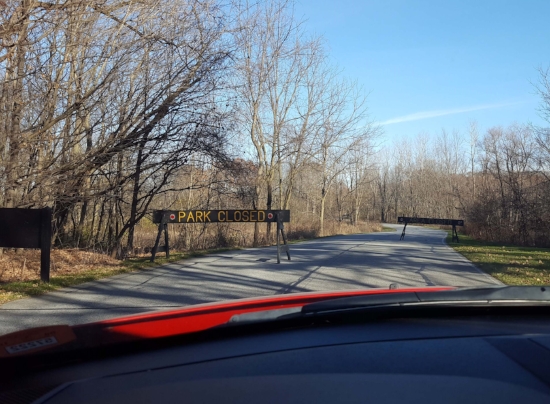As expected, a bobcat hunting/trapping bill (House Bill 1407) has been introduced in the Indiana General Assembly.
The language of the proposed bill defines a county “eligible” for a bobcat season as one that has surpassed a minimum of thirty (30) reported bobcat sightings received by the “department” for two consecutive years between Jan. 1, 2016 and Dec. 31, 2018.
Whether these reported bobcat sightings were real, mistaken, duplicative, or fraudulent is apparently of no importance. Verification by IDNR is not required. The only requirement was that someone reported a sighting to the department.
John Morrison Photography
The window for reporting bobcat sightings is officially over, and surely IDNR has already tallied the handful of statewide sighting reports it has received. Yet, HB 1407 fails to disclose which counties qualify for a bobcat hunting/trapping season.
According to the bill’s primary author, Rep. Lindauer’s office, the bobcat season is necessary because of “nuisance” concerns including livestock depredation and property loss.
These concerns, even if legitimate, fail to justify an open bobcat season.
This bill indiscriminately targets all bobcats in eligible counties merely for being present—by definition ignoring whether they’ve been a so-called “nuisance” or were just unlucky enough to be spotted in an eligible county.
Furthermore, Indiana law (312 IAC 9-10-11) already addresses “nuisance” concerns. According to IDNR:
As readers of this blog may also recall, IDNR, the agency entrusted with gathering data surrounding bobcats, issued, and then later removed from the Internet, its own bobcat FAQ sheet that reiterates nuisance complaints are in fact rare:
“We get very few reports of bobcats being a nuisance of causing damage”.
This, of course, begs the questions then, why would a statute be needed if complaints are minimal and problematic bobcats can already be legally controlled?
Follow the money.
House Bill 1407 proposes a recreational bobcat hunting/trapping season.
Recreational hunting/trapping and “nuisance” control are two distinct activities, each serving an entirely different purpose and governed by separate licenses and regulations. These distinct activities are also guided by different methodologies and articulated objectives.
The problem for IDNR and bobcat hunting proponents is that managing perceived “nuisance” bobcats under the authority of a wild animal control permit generates no revenue. IDNR does not charge a fee for this permit and the property owner or his/her agent assigned to kill the targeted animal, is prohibited from selling, gifting, trading or bartering animals taken.
The bill’s coauthors, Representatives Bacon, Lindauer, and Bartels, are the same elected officials who hosted, along with the IDNR, at least one closed-door meeting exclusively for hunting and trapping proponents for the purpose of discussing a recreational bobcat season.
This October 2018 meeting came on the heels of the NRC Secretary’s motion to the Indiana Natural Resources Commission (“NRC”) to withdraw a similar bobcat hunting/trapping season proposal (LSA Document #17-436, April 17, 2018) following intense public opposition.
According to the unedited notes from the October 2018 closed-door meeting, “50 plus” supporters of consumptive use (i.e., hunting, trapping, etc.) were in attendance. Any shortcomings on the part of IDNR to satisfy the “more than thirty (30) bobcat sightings” per county threshold to qualify a county for bobcat hunting eligibility was likely easily remedied during this meeting alone.
House Bill 1407 has been deliberately tailored to advance IDNR’s failed agenda of establishing yet another predator killing season. If adopted as proposed, this bill will enable the “director” to circumvent all future public input on this issue while simultaneously flipping a middle finger to those who showed up in force to oppose a similar measure in May of 2018.
Dodging public input is a pattern and practice of IDNR. And the Indiana legislature seems far too willing to intervene to push IDNR’s agenda regardless of how ill-conceived it may be.
If a recreational bobcat hunting season is established, bobcat hunters will be able to hunt these animals with packs of hounds. Additionally, there is nothing that would legally preclude these animals from being targeted during predator competition kills, similar to the coyote and fox killing derbies currently held in Indiana.
House Bill 1407 leaves no doubt as to what was behind those dark meetings hosted by the Indiana legislators and IDNR. The only unknown at this point is whether the public is willing to tolerate its legislators and state agencies abusing their power and utterly ignoring the resounding opposition Hoosiers clearly expressed.
Comments may be sent to Rep. Lindauer at: h63@iga.in.gov.


